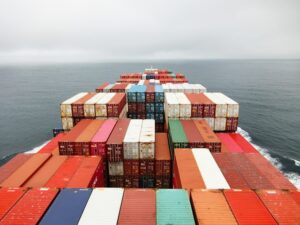The Biden administration faces the challenge of maintaining stable gas prices ahead of the election while taking a firm stance against adversaries such as Russia, Iran, and Venezuela, writes the Wall Street Journal. This dual priority has resulted in less stringent sanctions on major oil producers, according to diplomats, former government officials, and energy-industry experts.
Despite escalating tensions between Iran and the U.S. following the Oct. 7 attacks on Israel by Tehran-backed Hamas, Iranian oil exports have increased to over 1.5 million barrels per day this year, mostly purchased by small Chinese refineries at discounted prices, according to WSJ.
The publication cites the frustration within the U.S. Treasury Department over the lack of action against oil-trading networks that facilitate Russian and Iranian oil exports. One such network, operated by a trader from Azerbaijan, has become a key intermediary for Russia’s Rosneft Oil.
Supporters of the administration’s policy argue that it strikes a balance between keeping prices low and reducing profits for Russia and Iran.
When the Treasury sanctioned Russia’s state tanker owner, Sovcomflot, it exempted all but 14 of its 91 ships. This move was seen as a signal to oil traders that business with those ships was permissible, minimizing the risk of future sanctions. The National Economic Council, led by Lael Brainard, and other officials were concerned that broader sanctions could disrupt the oil market and increase inflation.
Rising oil output from sanctioned countries has contributed to a decline in crude prices from their earlier highs, writes WSJ. In a notable instance, Washington requested Ukraine to stop drone attacks on Russian refineries to prevent disruptions in global diesel and gasoline markets.
The average price of a gallon of gasoline was $3.44 earlier this week, similar to last year but significantly higher than four years ago, according to the U.S. Energy Administration.
Recent Iranian sanctions targeted companies in the UAE and Hong Kong that facilitate payments for Iranian crude. However, these measures are not expected to significantly impact oil markets, according to Kpler oil analyst Homayoun Falakshahi.














